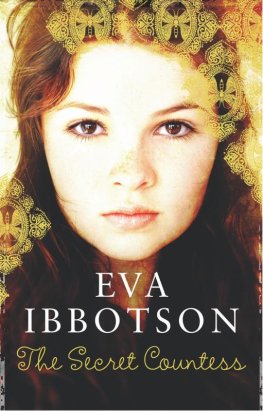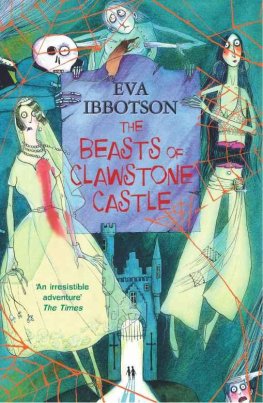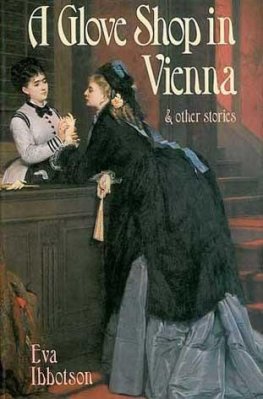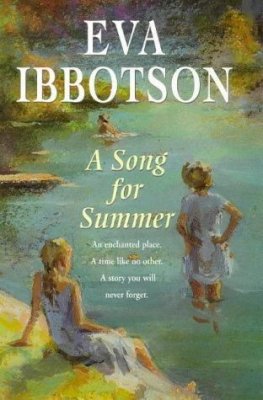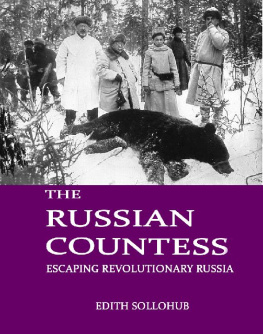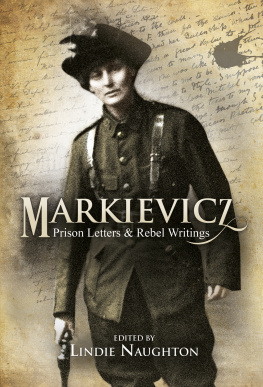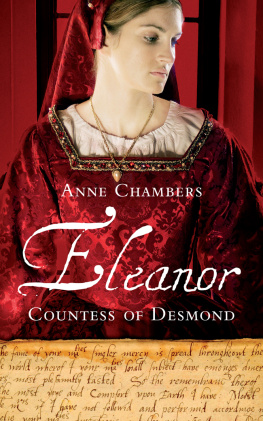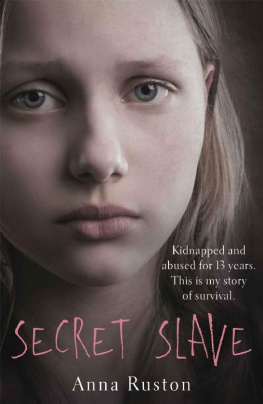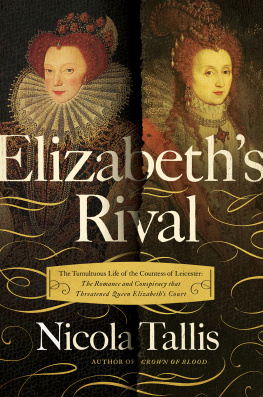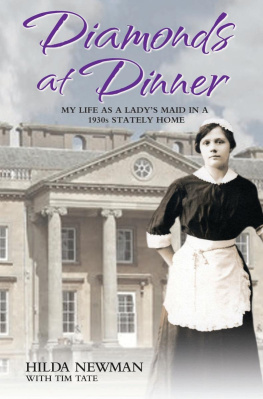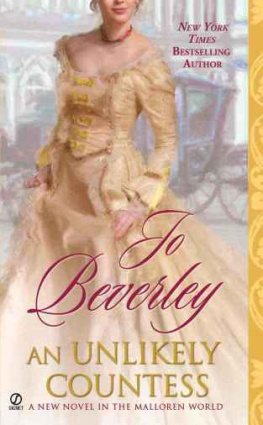
The Secret Countess
by
Eva Ibbotson
Eva Ibbotson was born in Vienna, but when the Nazis came to power her family fled to England and she was sent to boarding school. She planned to become a physiologist, but hated doing experiments on animals and was rescued from some fierce rabbits by her husband-to-be. She became a writer while bringing up her four children, and her bestselling novels for both adults and children have been published around the world. Her books have also won and been shortlisted for many prizes. Journey to the River Sea won the Nestl Gold Award and was runner-up for the Whitbread Childrens Book of the Year and the Guardian Fiction Award. The Star of Kazan won the Nestl Silver Award and was shortlisted for the Carnegie Medal. Eva lives in Newcastle.
A Song for Summer
The Star of Kazan
Journey to the River Sea
The Beasts of Clawstone Castle
The Great Ghost Rescue
Which Witch?
The Haunting of Hiram
Not Just a Witch
The Secret of Platform 13
Dial a Ghost
Monster Mission
Coming soon
The Morning Gift
In the fabled, glittering world that was St Petersburg before the First World War there lived, in an ice-blue palace overlooking the river Neva, a family on whom the gods seemed to have lavished their gifts with an almost comical abundance.
Count and Countess Grazinsky possessed in addition to the eighty-roomed palace on the Admiralty Quay with its Tintorettos and Titians, its Scythian gold under glass in the library, its ballroom illuminated by a hundred Bohemian chandeliers an estate in the Crimea, another on the Don and a hunting lodge in Poland which the countess, who was not of an enquiring turn of mind, had never even seen. The count, who was aide de camp to the tsar, also owned a paper mill in Finland, a coal mine in the Urals and an oil refinery in Sarkahan. His wife, a reluctant lady of the bedchamber to the tsarina, whom she detested, could count among her jewels the diamond and sapphire pendant which Potemkin had designed for Catherine the Great and had inherited, in her own right, shares in the Trans-Siberian Railway and a block of offices in Kiev. The countesss dresses were made in Paris, her shoes in London and though she could presumably have put on her own stockings, she had never in her life been called upon to do so.
But the real treasure of the Grazinsky household with its winter garden rampant with hibiscus and passion flowers, its liveried footmen and scurrying maids, was a tiny, dark-haired, bird-thin little girl, their daughter, Anna. On this button-sized countess, with her dusky, duckling-feather hair, her look of being about to devour life in all its glory like a ravenous fledgling, her adoring father showered the diminutives which come so readily to Russian lips: Little Soul, of course, Doushenka, loveliest of endearments but, more often, Little Candle or Little Star, paying tribute to a strange, incandescent quality in this child who so totally lacked her mothers blonde, voluptuous beauty and her fathers traditional good looks.
Like most members of the St Petersburg nobility, the Grazinskys were cultured, cosmopolitan and multilingual. The count and countess spoke French to each other. Russian was for servants, children and the act of love; English and German they used only when it was unavoidable. By the time she was five years old, Anna had had three governesses: Madame Leblanc, who combined the face of a Notre Dame gargoyle with a most beautiful speaking voice, Frulein Schneider, a devout and placid Lutheran from Hamburg and Miss Winifred Pinfold from Putney, London.
It was the last of these, a gaunt and angular spinster with whose nose one could have cut cheese, that Anna inexplicably chose to worship, enduring at the hands of the Englishwoman not only the cold baths and scrubbings with Pears soap and the wrenching open of the sealed bedroom windows, but that ultimate martyrdom, the afternoon walk.
Very bracing, Miss Pinfold would comment, steering the tiny, fur-trussed countess, rigid in her three layers of cashmere, her padded capok lining, her sable coat and felt valenki along the icy quays and gigantic squares of the city which Peter the Great had chosen to raise from the salt marshes and swamp-infested islands of the Gulf of Finland in the worst climate in the world.
Not at all like the dear Thames, Miss Pinfold would remark, watching a party of Lapps encamped on the solid white wastes of the Neva and receiving, on the scimitar of her crimsoned nose, a shower of snow from an overhanging caryatid.
It was during these Siberian walks that Anna would meet other children who shared her exalted martyrdom: pint-sized princelings, diminutive countesses, muffled bankers daughters clinging like clumps of moss to the granite boulders of their English governesses. Her adored Cousin Sergei, for example, three years older than Anna, his face between the earmuffs of his shapka, pale with impending frostbite and outraged manhood as he trudged behind his intrepid Miss King along the interminable, blood-red facade of the Winter Palace; or the blue-eyed, dimpled Kira Satayev, hardly bigger than the ermine muff in which she tried to warm her puffball of a nose.
Yet it was during those arctic afternoon excursions that Anna, piecing together the few remarks that the wind-buffeted Miss Pinfold allowed herself, became possessed of a country of little, sun-lit fields and parks that were for ever green. A patchwork country, flower-filled and gentle, in which a smiling queen stood on street corners bestowing roses which miraculously grew on pins upon a grateful populace A country without winter or anarchists whose name was England.
Anna grew and nothing was too good for her. When she was seven her father gave her, on her nameday, a white and golden boat with a tasselled crimson canopy in which four liveried oarsmen rowed her on picnics to the islands. Each Christmas, one of Fabergs craftsmen fashioned for her an exquisite beast so small that she could palm it in her muff: a springing leopard of lapis lazuli, a jade gazelle with shining ruby eyes To draw her sledge through the park of Grazbaya, their estate on the Don, the count conjured up two silken-haired Siberian yaks.
You spoil her, said Miss Pinfold, worrying, to the count.
I may spoil her, the tall, blond-bearded count would reply, but is she spoilt?
And the strange thing was that Anna wasnt. The little girl, wobbling on a pile of cushions on the fully-extended piano stool to practise her tudes, gyrating obediently with her Cousin Sergei to the beat of a polonaise at dancing class or reciting Les Malheurs de Sophy to Mademoiselle Leblanc, showed no sign whatsoever of selfishness or pride. It was as though her mothers cosseting, the fussing of the servants, her fathers limitless adoration, produced in her only a kind of surprised humility. Miss Pinfold, watching her charge hawk-eyed, had to admit herself defeated. If ever there was such a thing as natural goodness it existed in this child.
When Anna was eight years old, the gods tilted their cornucopia over the Grazinskys once again and, in the spring of 1907, the countess gave birth to a son whom they christened Peter. The baby was enchanting: blue-eyed, blond as butter, firmly and delectably fat. The count and countess, who had longed for a son, were ecstatic, friends and relations flocked to congratulate and Old Niannka, the ferocious Georgian wet nurse with her leather pouch containing the mummified index finger of St Nino, filled the house with her mumbling jubilation.
Next page
